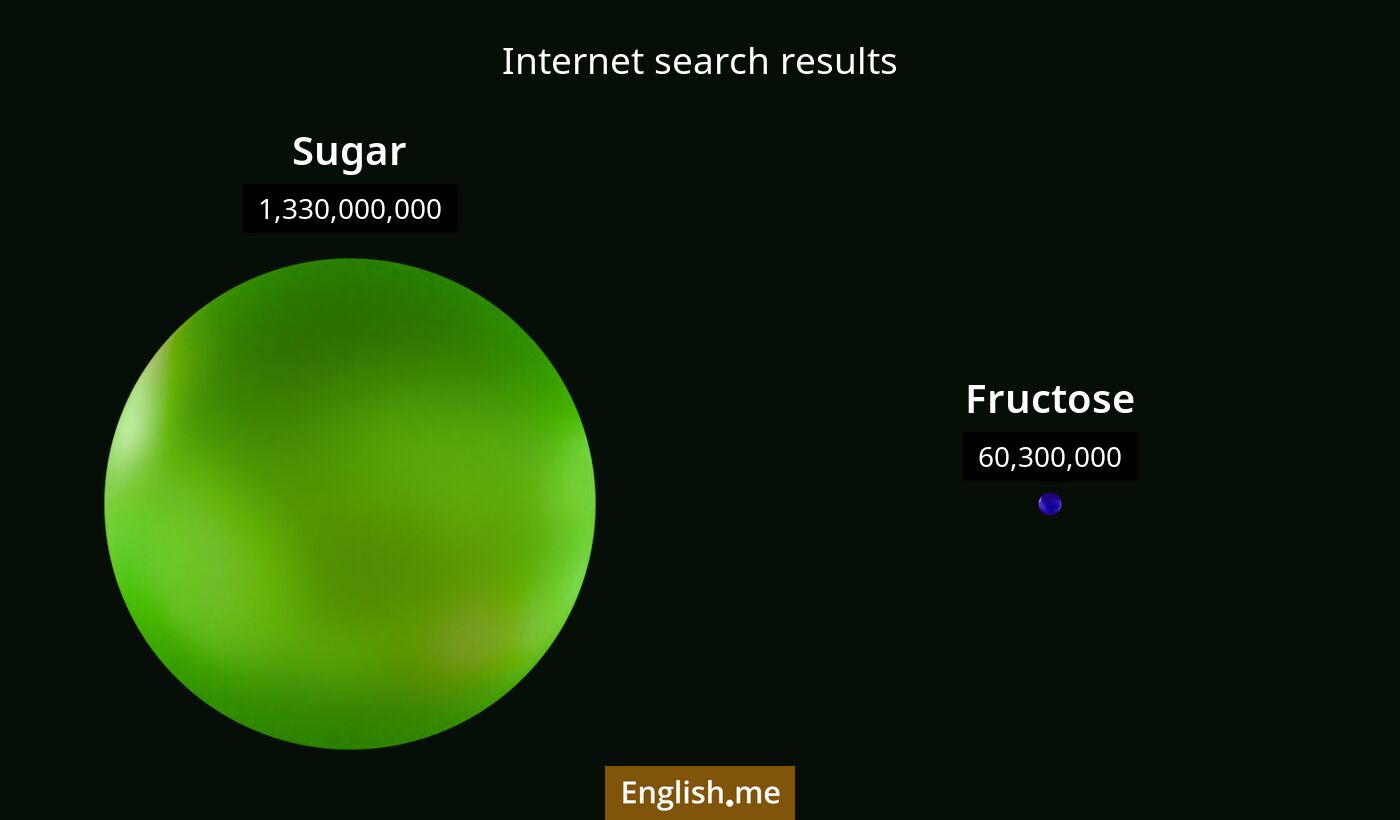Sweet talk: exploring the nuances between "sugar" and "fructose"
Reviewed and edited by  Anwar Kareem 02/10/2024, 10:59
Anwar Kareem 02/10/2024, 10:59
English.me team member

 What is similar?
What is similar?
Both "sugar" and "fructose" refer to sweet-tasting substances that are part of the carbohydrate family. They are used in food and drinks and are sources of energy.
 What is different?
What is different?
"Sugar" is a general term for sweet-tasting, soluble carbohydrates, which includes different types such as sucrose, glucose, and fructose. "Fructose" is a specific type of sugar, also known as fruit sugar, found in fruits, honey, and root vegetables.
 Which one is more common?
Which one is more common?

 Examples of usage
Examples of usage
Sugar- She added a teaspoon of sugar to her coffee.
- Sugar is often used as a sweetener in baking.
- They are trying to reduce their sugar intake for health reasons.
- Fructose is naturally found in fruits and honey.
- The fructose content in this beverage is quite high.
- Some people have difficulty digesting fructose properly.

 English
English español
español française
française italiano
italiano deutsche
deutsche 日本語
日本語 polski
polski česky
česky svenska
svenska Türkçe
Türkçe Nederlands
Nederlands